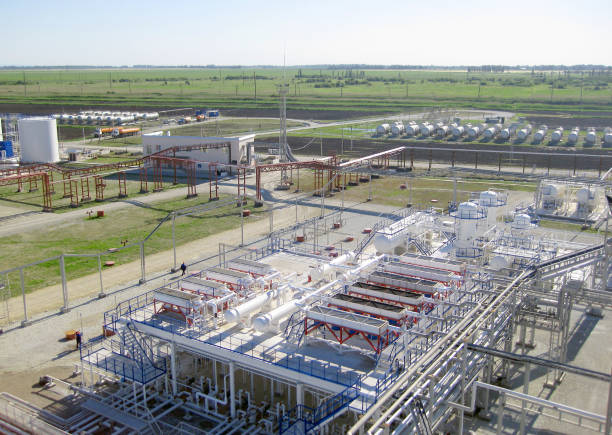Strengthening Propane Delivery: A Guide to Resilience

Creating a Robust Infrastructure for Reliable Supply
In the hectic world of energy delivery, building a resilient propane delivery infrastructure is crucial for maintaining service reliability and customer satisfaction. Propane companies can employ a number of essential steps and strategies for developing a delivery system that stands strong against disruptions, ensuring a steady supply of propane to meet consumer demands.
Strategic Planning and Analysis
Risk Assessment: Conduct thorough risk assessments to identify potential vulnerabilities within your delivery infrastructure, including natural disasters, supply chain disruptions, and regulatory changes. Understanding these risks is the first step in fortifying your operations.
Capacity Planning: Analyze your current capacity to handle peak demands and unexpected surges in propane needs. Plan for additional storage facilities or mobile storage units to accommodate fluctuations without compromising service quality.
Enhancing Supply Chain Robustness
Diversify Supply Sources: Relying on a single source for your propane can be risky. Establish relationships with multiple suppliers across different geographic locations to mitigate the impact of regional disruptions.
Strategic Stockpiling: Consider strategic stockpiling of propane to cushion against short-term supply disruptions. Properly located and managed stockpiles can serve as a critical buffer during supply chain shocks.
Investing in Technology and Innovation
Advanced Monitoring Systems: Implement state-of-the-art monitoring systems for real-time tracking of propane levels, fleet locations, and delivery schedules. This technology enables proactive management of supplies and delivery routes.
Automation and IoT: Leverage automation and IoT (Internet of Things) solutions to optimize delivery schedules, route planning, and tank monitoring. Automation can enhance operational efficiency and response times to changes in demand.
Infrastructure and Equipment Upgrades
Regular Maintenance: Ensure regular maintenance and upgrades of storage facilities, delivery fleets, and equipment. Well-maintained infrastructure is less prone to failures and can operate more efficiently.
Weatherproofing: Invest in weatherproofing measures for storage facilities and delivery vehicles to protect against extreme weather conditions. This includes reinforcing structures and ensuring vehicles are equipped for safe operation in various climatic conditions.
Training and Preparedness
Employee Training: Conduct comprehensive training programs for employees on emergency response, safety protocols, and efficient delivery practices. A well-trained team is essential for maintaining operations during disruptions.
Disaster Preparedness Plans: Develop and regularly update disaster preparedness plans. These plans should outline procedures for maintaining operations during emergencies, including alternative communication systems and contingency delivery routes.
Building Community and Regulatory Relationships
Engage with Local Communities: Building strong relationships with local communities can facilitate smoother operations during disruptions. Community support can be invaluable in overcoming logistical and operational challenges.
Regulatory Compliance: Stay informed and compliant with all regulatory requirements related to propane storage and delivery. Compliance not only avoids legal issues but can also guide best practices in infrastructure safety and reliability.
A Foundation for the Future
Constructing a resilient propane delivery infrastructure requires foresight, investment, and continuous improvement. By addressing vulnerabilities, leveraging technology, and fostering strong relationships, propane delivery companies can build a robust system capable of withstanding the challenges of tomorrow. This resilience not only secures the supply chain but also reinforces the trust customers place in your service, ensuring your business remains a reliable energy provider and valuable community resource.
















